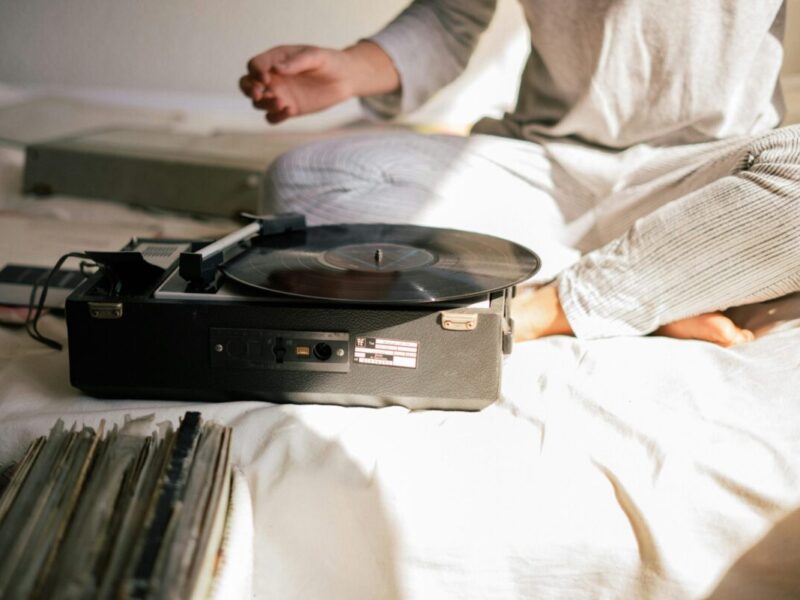As I write this, I’ve recently finished up six creative writing graduate school applications, submitted poems to literary journals, and started delving back into short story writing. Like most writers, I would say this hectic creative schedule has been rewarding and fun, but it comes with an unfortunate side effect that we’re less likely to talk about: I’m feeling a little burned out.
It turns out I’m far from alone. According to a recent Gallup poll, 44 percent of employees report feeling burned out “sometimes,” while this heightens to “very often” or “always” for 23 percent. Though no one’s conducted a burnout study specifically devoted to writers, evidence shows that our rates might be even higher. Creative people are more likely to struggle with anxiety, a predictor of burnout, and writers often have to juggle various deadlines.
If all of this sounds familiar, don’t panic: Follow our suggestions to take a break and stave off burnout. It might just allow you to return to your writing with deeper appreciation and vision, reminding you why you love to write in the first place.
Allow yourself to be unproductive—and disconnected.
Artist Jenny Odell’s most recent book, How To Do Nothing: Resisting the Attention Economy, has become one of the most recommended books this year for creatives. In it, Odell argues that we should take time each day to not worry about if we’re being productive. This can involve time spent in nature, time away from the pressures of one’s phone, and time freed up from obligations. Odell also advocates for what she sums up as “refusal,” or turning down those plans, opportunities, or activities that don’t really serve you.
Odell isn’t the only one who champions this idea. Research from Psychology Today indicates that smartphones can be hindering our creativity, while we all know they can cause us to compare our accomplishments to others’. Try setting limits on your screen time, or chip away at this goal by consciously enjoying one phone-free hour per day. You can also approach the decision to accept or turn down plans and opportunities with this Twitter guide from poet Eloisa Amezcua, which asks people to consider variables like financial sense, community, downtime at home, and more.
Read more: 5 Surprising Techniques to Unlock Your Creativity
Read writing by others.
What led you to become a writer? Chances are that amazing books and poems by others first spurred this inspiration. When you’re feeling exhausted by your craft, it can be effective to return to this initial source. Pick up Poetry Magazine (or listen to their awesome, free podcast), a new book of poetry, or an old favorite. You could even read a poem by a friend and give them feedback, as forming a workshop can help counter the solitary nature of writing. After examining what works and doesn’t work in the poetry of others, you might be able to apply those lessons to your own poems.
While poetry lovers typically can’t get enough of their favorite genre, I also suggest reading something else you enjoy to add variety and avoid hyperfocus. This month, I’m reading Margaret Atwood’s The Testaments. Whether it’s a YA release, a romance novel, or true crime, give your mind a momentary break from stanzas.
Read more: From Block to Brainstorm: Prompts to Activate and Inspire Your Poetry
Make time for connection.
As previously noted, writing can be seriously lonely. Not even the best laptop, cozy blanket, or soothing soundtrack can replace friends, family, and other relationships. Research suggests that feeling burned out can lead people to withdraw socially. However, this impulse proves counterproductive, and can actually worsen the spiral.
Put down your notebook and call a friend. Schedule a once-a-week coffee or taco date with your crew. Give back to others through volunteering. Whatever your avenue, temporarily diverting your focus from your poems to your people can help you re-energize.
Find a new creative outlet (yes, besides writing).
Many of us got into writing because we love creating. Along the way, our love for writing might have remained, and even flourished, but become complicated by factors like academia, publishing, and imposter syndrome.
It can be difficult to balance the love with the work—especially if you consider writing to be your job.
Get back to the uncomplicated roots of creating by taking it up not as work, but as a hobby, whether that be through calligraphy, painting, or playing an instrument. Personally, I find that when I practice painting or crochet, I’m likely to make mistakes. Recognizing these mistakes and learning to overcome them without shame or pressure shows me that I can adapt this mindset to my writing.
Read more: 8 Poetry Exercises to Help Your Creativity Flow
Stay active.
Most people would describe their writing lives as sedentary. When I think of my long nights hunched over on the couch, I have to admit that they’re probably right. Of course, exercise has been linked to lower rates of stress and anxiety. The poet Michelle Boisseau used to say, “If you can’t write, walk.” Borrow this mindset, or adjust it to fit your own interests: If you need a writing break, bike, dance, kickbox, or flow through a yoga routine. Maybe the endorphins you gain will come out on the page.
Let your writing burn bright—not burn out.




